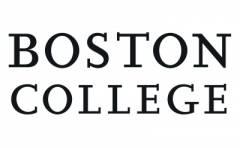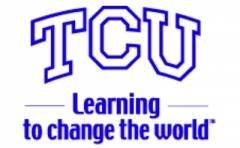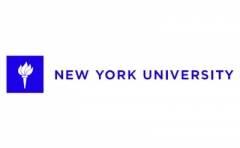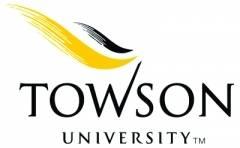Best Early Childhood Education and Teaching colleges in the U.S. 2026
Early childhood education and teaching majors are responsible for developing the young minds of children ranging in ages from infancy to 8 years old. Persons who have a passion for and understanding of the individuality of young children may find that early childhood education and teaching is the perfect degree choice. The coursework is geared towards child development and student involvement. Instruction includes health, safety, and nutrition for young children, growth and development, language development, math, science, and the arts. Individuals must be able to develop the appropriate curriculum and learning environment based on the individual and group needs of the children and based upon the latest educational trends.
There's also a huge emphasis on creating and maintaining a child-safe and healthy environment. With a degree in early childhood education and teaching, a graduate can become a teacher, teachers' assistant, curriculum developer, or daycare worker. Successful teachers have the skills to motivate their students. They recognize the social, physical, intellectual, emotional, and creative strengths and weaknesses in each child and can effectively combine them to produce one coherent classroom setting. Verbal and written communication skills are also critical in this major because the student is not only working with children, but with their parents or guardians.
Click Here to See the Best Colleges in the USBest Early Childhood Education and Teaching colleges in the U.S. for 2026
CUNY Hunter College offers 3 Early Childhood Education and Teaching degree programs. It's a very large, public, four-year university in a large city. In 2023, 93 Early Childhood Education and Teaching students graduated with students earning 61 Master's degrees, 29 Bachelor's degrees, and 3 Certificates.
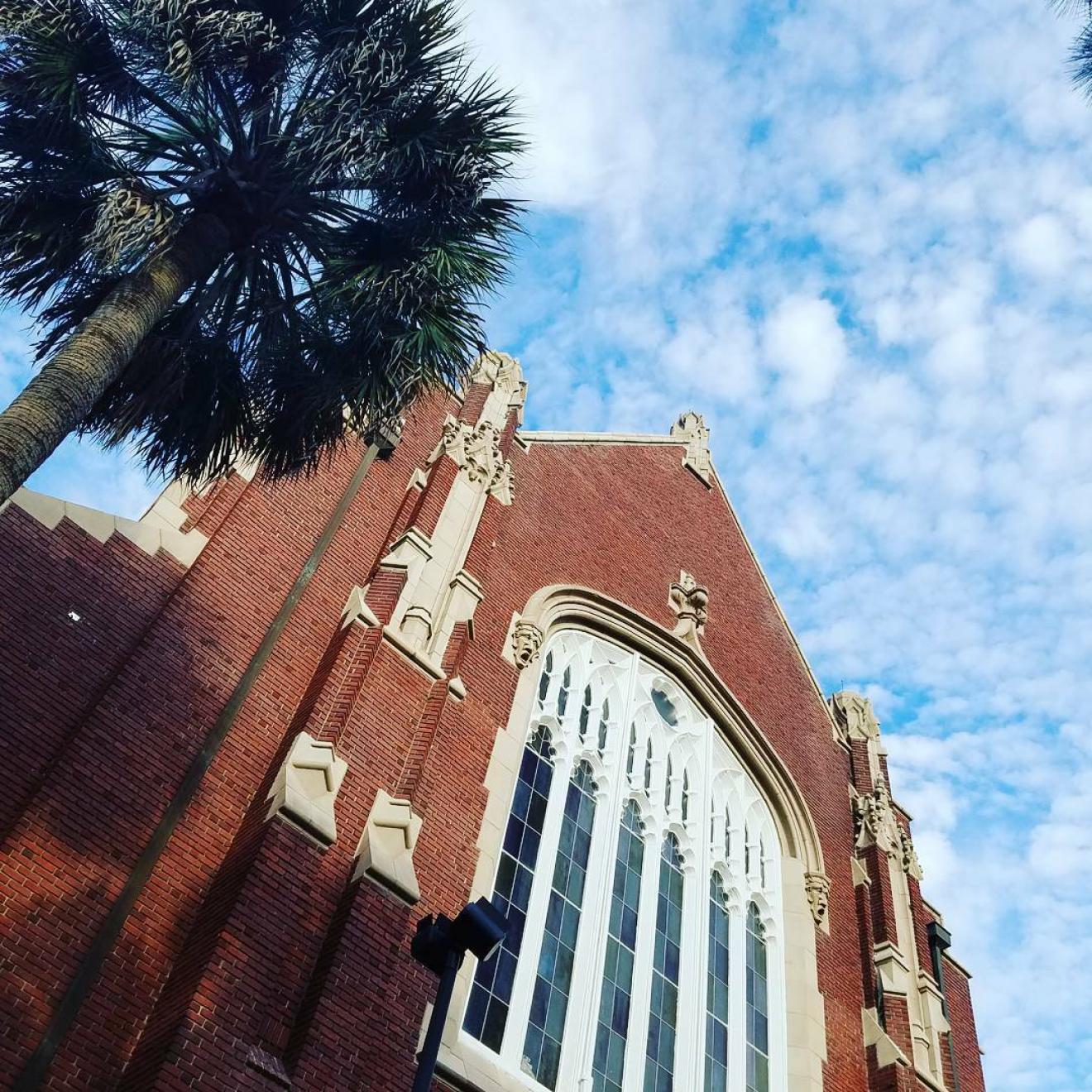
The University of Florida has certificate-level and master’s degree programs for prospective students in the field of early childhood education. Asynchronous online classes and lectures can be accessed on your laptop or phone and can impart marketable skills needed to work as a teacher or childhood educator.
Boston College has a great online program for students entering the field of early childhood education and connects high-quality academic instructors and students in a virtual learning environment. Students who graduate with a bachelor’s degree are eligible to take the required licensure exams in their home state immediately after graduation.
For those interested in getting a degree in early childhood education, TCU offers bachelor's degrees that impart the skills needed for their students to excel as elementary school teachers and school administrators. Classes, study tools, and professional development resources make this program a top choice for prospective applicants.

NYU’s Bachelor’s in Early Childhood education track allows students to take online classes from the comfort of their homes and can be a great option for working professionals that want to get their master’s on their own time. This program is a great way for students to gain the skills they need to work in a classroom setting as a teacher or develop a curriculum in an administrative capacity.
University of North Florida offers 3 Early Childhood Education and Teaching degree programs. It's a large, public, four-year university in a large city. In 2023, 32 Early Childhood Education and Teaching students graduated with students earning 31 Bachelor's degrees, and 1 Certificate.
Towson University has bachelor’s and master’s programs for those interested in working with children and adolescents as an elementary school teacher or para educator. The academic course load at Towson prepares students to complete the necessary licensure exams for their home state before applying to full-time roles.
Find local colleges with Early Childhood Education and Teaching majors in the U.S.
What is Early Childhood Education and Teaching?
Students that pursue a degree in early childhood education graduate with the skills needed to teach and instruct children in an academic setting. These programs often include courses like language development, social and behavioral sciences, and preschool behavior to name a few. It is typical for these programs to range in length, so it is smart for prospective applicants to assess their level of interest in spending more time in the classroom to achieve graduate degrees. Programs prepare students to function independently as teachers and academic instructors, and take the necessary licensure exams for their home state.
Associate Degree in Early Childhood Education and Teaching
For those interested in quickly gaining the necessary skills to work in a classroom setting, an associate program in early childhood education typically takes up to two years. Students enrolled in an associate degree program often structure their course loads so that they can transfer to a bachelor’s track after they complete their second year, though some choose to take their licensure exams and enter the workforce immediately after graduation.
Bachelor's Degree in Early Childhood Education and Teaching
Many students that pursue degrees in early childhood education pursue the traditional bachelor’s track at a four-year college or university, and these programs usually require general education and elective requirements to be met for an average of 120 credits. Potential applicants must understand the commitment associated with pursuing a bachelor’s degree in early childhood education, as well as the financial implications.
Master's Degree in Early Childhood Education and Teaching
Whether you hold a bachelor’s degree or have been working professionally as an elementary school teacher for a few years, there’s never a bad time to enroll in a master’s program and open the door to exciting opportunities in the field of early childhood education. Master’s programs can last from one to two years and prepare students to hold administrative and leadership roles at charter schools and academies.
What is a Master’s in Early Childhood Education?
People who have a passion for understanding the individuality of young children may be a perfect fit for a master’s degree in early childhood education. The coursework is geared towards child development and student involvement, and instruction includes:
- Health
- Safety
- Nutrition for young children
- Growth and development
- Language development
- Math
- Science
- Arts
Students must be able to develop the appropriate curriculum and learning environment based upon the latest educational trends for both individual children and groups.
What Can I Do With a Degree in Master’s in Early Childhood Education?
With a degree in early childhood education and teaching, you can pursue a career in roles including:
- Childcare worker
- Preschool teacher
- Teachers’ assistant
- Special education teacher
- Preschool and childcare care director
For any of these careers, ideal candidates should possess a creative mind, a love of children, and the ability to adapt to unexpected occurrences. Below is a list of potential jobs that someone studying master’s in early childhood education could grow into.
Choosing the Best Master’s in Early Childhood Education Program
When choosing an early childhood education master’s program, ECE students need to consider a variety of factors including
- Onlive vs. on campus programs
- Program costs
- Program length
- Accreditation
- Admission requirements
A master’s in early childhood education takes about two years to complete, but certain factors can alter that time frame. A program with a higher credit requirement, for instance, can take longer to finish.
This section explores the many factors that students should consider when choosing a master’s program in early childhood education.
Earning a Master’s Degree in Early Childhood Education
Students should consider a variety of factors when deciding on a college, including:
- Program specializations
- Admission requirements
- Specific areas of focus (specialization vs elective courses)
Additionally, when deciding on a master’s program it is important to look at course offerings, program length, and skill development.
Courses in Early Childhood Education Graduate Programs
Since course offerings vary by school, students should review each institution’s curriculum to find the early childhood education degree that best suits their needs. However, certain foundational topics are common across most programs. While the names of these courses may differ, many degrees feature courses in the following topics:
| Fundamental Courses | Descriptions |
| Child Behavior | Child behavior courses provide students insight into how to effectively encourage good behavior from their students. Courses may also explore environmental elements that could cause children to behave poorly. |
| Child Development | Child development courses borrow concepts from psychology and sociology to examine a child’s growth on various levels. A child development course may cover cognitive changes as children age, as well as the psychological needs of children at specific times in their lives. |
| Childhood Literature | Childhood literature courses explore the different genres of children’s literature. For instance, these courses may cover fairy tales, picture books, fantasy novels, and young adult fiction. These courses may explore common themes, the evolution of children’s writing, and ways literature impacts children. |
| Early Childhood Curriculum | Early childhood curriculum courses teach students to develop curricula based on their class’s needs. These courses explore theories and methodologies involved in classroom design and organization, and apply those concepts in building lesson plans and choosing activities for young children. |
| Student Teaching | Many educational programs require student teaching experiences. During these field requirements, candidates apply the skills they learned within the program in a classroom setting. |
How Long Does a Master’s in Early Childhood Education Take To Finish?
Typically, master’s degrees in early childhood education take two years to complete. However, program details may alter this time frame. For instance, accelerated programs allow ECE students to advance through coursework quickly. Cohort programs, on the other hand, prefer that students take courses as a group.
Most early childhood education master’s programs require 30-36 credits, so students need to complete 15-18 credits per year to finish the degree in two years. These credits are typically divided into fall and spring semesters only, though some programs include additional semesters. Students can also enroll part-time, taking smaller course loads but finishing in more than two years.
Skills Learned in a Master’s in Early Childhood Education Program
Pursuing a master’s degree in early childhood education requires patience and a significant amount of energy. Additionally, early childhood education programs can build these skills:
- Communication
- Curriculum preparation
- Behavior
- Child development
- Management
By earning a master’s in early childhood education, graduates gain a competitive edge for careers in the field.
Master’s in Early Childhood Education Admission Requirements
When applying to ECE master’s programs, it is highly recommended that potential students apply to two types of school.
The first group is target schools, or institutions with admission standards that give them a strong chance of acceptance. This provides applicants with “fallback” options if they don’t get accepted into their desired programs.
The second category of schools includes colleges and universities that appeal to the student but hold more vigorous admission details. This strategy gives applicants the possibility of acceptance at a prestigious university, with little risk.
Prerequisites & Admission Material
Admissions standards differ among schools. Generally, anyone applying to an online early childhood education master’s program must hold a bachelor’s degree in education or a related field. Some master’s programs require applicants to hold teaching licensure or certification.
Applicants may need to provide proof of experience working with young children, and many schools request applicants’ GRE, GMAT, or MAT scores. Below is the standard list of prerequisites and admission material for ECE Master’s programs.
| Prerequisites | Description |
| Bachelor’s Degree | A majority of colleges and universities require either a bachelor’s degree or ask for prior coursework in areas such as child development. |
| Professional Experience | Many programs insist that applicants hold a current teaching license and classroom experience. |
| Minimum GPA | Schools often require a 3.0 GPA for students to enter a master’s program. ECE students who do not meet the minimum GPA requirement can contact schools to explore their options. |
| Application Requirements | |
| Application | Certain schools require written components such as statements of purpose, personal essays, and letters of recommendation. The application process can be long, so it is recommended that applicants prepare for the process to take weeks. |
| Transcripts | Transcripts provide records of academic progress. Students should contact every school they have attended and request to send transcripts to their new schools. Typically, ECE students must pay a small fee for each transcript. |
| Letters of Recommendation | Letters of recommendation may come from professors, employers, or community leaders. Candidates should give their references at least two weeks to write the letters. |
| Test Scores | Some graduate programs may require ECE students to take the GRE. Programs that ask for a teaching license may also, by extension, require an exam that was included in the licensure process. |
| Application Fee | Some schools do not charge an application fee while others charge $25-$95. Applicants should check with each school to see about available application fee waivers. |
How Much Does a Master’s in Early Childhood Education Cost?
Tuition rates differ among colleges and universities, and certain factors may impact the cost of an early childhood education degree. For instance, private universities usually charge higher tuition rates than public colleges because private institutions depend more heavily on tuition money and private donors.
Additionally, degree candidates may experience higher tuition rates at out-of-state schools. However, some out-of-state schools extend in-state tuition rates to all online students regardless of where they live. Students who study part-time may pay higher tuition rates, depending on the school’s policies.
Along with tuition, ECE may have to pay program fees. Possible costs include
- Technology fees
- Student services fees
- Fieldwork fees
- Health fees
- Housing fees
Students must also consider textbook costs and commuting expenses like gasoline and parking permits.
Certification and Licensure in Early Childhood Education and Teaching
While there are a multitude of options for current students and graduates that want to get a certificate or license in the field of early childhood education, some common and widely accepted include the early childhood educator (ECE) and the child development associate (CDA) designations. These can be used to boost your resume and gain the necessary skills to work in a classroom environment
What Can I Do with a Degree in Early Childhood Education and Teaching?
Early childhood education is a teaching specialization that prepares students to work with children and adolescents in a daycare or classroom setting. Those interested in pursuing this degree track often pursue roles as teachers or school administrators to develop curriculum, organize parent-teacher meetings, and assess academic progress.
There is an ever-present demand for quality teachers that can inspire their students to learn and grow academically and socially in the classroom, and graduates that pursue programs in early childhood education can apply their teaching skills at public, private, and charter schools across the country.
Early childhood education (ECE) students learn valuable skills for dealing with young children. They recognize the social, physical, intellectual, emotional, and creative strengths and weaknesses in each child and can effectively combine them to produce one coherent classroom setting. Because early childhood education teachers also work with parents and guardians, strong verbal and written communication skills are critical.
With a degree in early childhood education and teaching, a graduate can pursue a wide range of professions, from teacher or childcare care director to less obvious careers, such as an early childhood consultant.
Graduates with an online degree in early childhood education can work as teachers, special education instructors, and even at the administrative level as principals and deans. Kindergarten and elementary school teachers can make up to $61,000 annually, while special education teachers gross on average $67,000. Given the importance of academic growth for children starting at a young age, these roles are critical to the development of children from all walks of life. Teaching is a rewarding career, and there is always a demand for licensed educators.
Earning an Online Early Childhood Education and Teaching Degree
Online vs. On Campus ECE Degrees
Many ECE students have the option to choose between an online or on-campus degree. Online degree programs offer flexible schedules and allow working teachers to maintain their current employment.
On-campus programs, on the other hand, could help you form connections with the local school district. Furthermore, learning on-campus also fosters networking relationships. This networking occurs through practicums and internships, as well as symposia and other events.
While many students choose to attend universities and enroll in programs that require face-to-face interaction, and instructional lab time, there are online options for students interested in pursuing a degree in early childhood education. Students exploring online degree options have access to programs across the country, and may select a particular program for the specializations or certificates offered. Online students can enjoy the flexibility of attending lectures from the comfort of their homes, and can take quizzes and tests at their own pace. Working professionals often enroll in online programs so that they can continue to earn an income while building their academic portfolio.
Early Childhood Education and Teaching Career and Salary Overview
Early Childhood Educators work with our youngest children in the years before they enter Kindergarten. These preschool teachers, as they are often called, give them the basic knowledge that will serve as a foundation for what they will later learn in school.
Early Childhood Educator Careers & Degrees
Just as important as the lessons in numbers and the alphabet, are the good habits, fine motor skills, and an interest in learning they foster in students. With the right help during these formative years, a child may gain an educational advantage that will follow him throughout his life. The best early childhood educators, through a combination of training and experience, know how to utilize play to help children learn. The average 3-5 year old will likely have trouble learning to count to ten if forced to sit at a desk. But combined with a game, craft, story, or physical activity, counting could come quite easily to the same child. Early childhood educators also use these activities to improve their students' fine motor and social skills. Crafts that involve painting, for example, will help a student develop the hand-eye coordination needed to write; group games teach young students how to cooperate with others and work toward a common goal. By incorporating lessons into play, teachers have their students associate learning with fun. If done correctly, the child will grow into a student who takes pleasure in learning and thus is likely to do very well in school.
Early Childhood Educator Careers Path
Depending on the facility, early childhood educators may need a Bachelor's degree or only a high school diploma. For those who wish to work at better private facilities or in state recognized prekindergarten programs, an Associate's degree is usually the lowest education level accepted. College coursework will be in childhood development and early childhood education. Certification as a Child Development Associate (CDA) may also be helpful in securing a job.
| Career | Salary | Projected Job Growth (2020-2030) | Description |
| Childcare Worker | $25,460 | 8% | Childcare workers attend to children’s needs while helping to foster early development. They may help younger children prepare for kindergarten or assist older children with homework. |
| Preschool and Childcare Center Directors | $49,160 | 11% | Directors of this caliber oversee childcare workers and teachers, make decisions regarding policy, and choose applicants to hire as new employees. These workers also deal with budgets, update parents on children’s wellbeing, and ensure the center functions according to relevant standards, such as federal regulations for Head Start programs. |
| Preschool Teacher | $31,930 | 18% | Preschool teachers help students who are too young for kindergarten learn early concepts such as numbers, colors, communication, and hygiene basics. These teachers plan curricula and encourage children to learn through play, storytelling, and interaction with other children. Work settings include schools and childcare organizations. |
| Special Education Teacher | $61,500 | 8% | Special education teachers work with students who have learning, mental, emotional, or physical disabilities. They adapt general education lessons and teach various subjects to students with mild to moderate disabilities. |
| Teachers’ Assistant | $28,900 | 9% | Teachers’ assistants keep up with classroom information, such as grades, and offer students help with classroom topics. They also aid in monitoring students and maintaining classroom guidelines. Other responsibilities involve getting classrooms ready for the day’s itinerary. |
Source: BLS
Compatible Personality Traits for an Early Childhood Educator
Excellent with children, patient, excellent communication skills, creative thinker, works well with others, kind, multi-tasker, handles stress well, willing to work odd hours, trustworthy, highly organized.
Salary Expectations for an Early Childhood Educator
The average salary for early childhood educators is $23,870 a year, with the middle fifty percent earning between $18,840 and $31,430. Pay will vary depending on education level and, by extension, the type of facility at which one works. Those with more education are likely to work in better facilities and command a higher salary. With more experience, early childhood educators may be able to move into head teacher or administrative positions where the potential for increased salary is greater.
Early Childhood Educator Careers: Job Outlook
The job outlook for early childhood educators in the coming years is expected to be very good. Though the number of young children is dropping (the children of the baby boomers having already passed this stage in life), there has been in recent years a greater emphasis put on early childhood education. As we have come to realize the importance of a child's early development, our society is increasingly demanding the services of preschool teachers. There will also be a need to fulfill the positions that open when current teachers leave the field. Early childhood educators who have more extensive education should be the most likely to find higher paying positions.
Slightly off the Path
- Teaching Assistant
- Elementary School Teacher
- School Administration
- Special Education Teacher
Early Childhood Education Career Resources
Professional organizations provide ECE graduates and students with multiple benefits, including access to networking opportunities, conferences, seminars, and other events. Many of these groups also assist with professional endeavors by providing members with job boards and current research.
Some organizations may offer continuing education programs to help teachers maintain or upgrade their licenses. Below are five relevant organizations that ECE graduates and students should explore and get connected with.
| Organizations | Descriptions |
| Association for Childhood Education International (ACEI) | ACEI is a global community of educators and advocates who share knowledge, experience, and perspectives in order to exchange information and advocate for children. The Association promotes and supports the education and development of children and the professional growth of educators and others committed to the needs of children in a changing society. |
| National Association for the Education of Young Children (NAEYC) | NAEYC is dedicated to improving the well-being of all young children, with particular focus on the quality of educational and developmental services for all children from birth through age 8. The Association sponsors a variety of initiatives to improve professional preparation of early childhood educators and produces a wide array of early childhood resources. NAEYC membership provides participation in both national and local services through the Association’s network of over 300 local, state, and regional Affiliates. |
| National Black Child Development Institute (NBCDI) | NBCDI provides and supports programs, workshops, and resources for African American children, their parents and communities in early health and education, health, elementary and secondary education, child welfare, and parenting. |
| National Head Start Association (NHSA) | NHSA provides support for the Head Start community by advocating for policies to strengthen Head Start services; providing training and professional development to Head Start staff; and developing and disseminating research, information, and resources that enrich Head Start program delivery. |
| National Association for Family Child Care (NAFCC) | NAFCC is dedicated to promoting quality child care by strengthening the profession of family child care. NAFCC provides technical assistance to family child care associations by promoting leadership development and by promoting quality and professionalism through the organization’s accreditation process for family child care providers. |
Early Childhood Education and Teaching FAQ
List of all Early Childhood Education and Teaching colleges in the U.S.
| School | Average Tuition | Student Teacher Ratio | Enrolled Students | |
|---|---|---|---|---|

|
CUNY Hunter College New York, NY | 36 : 1 | 22,879 | |

|
University of Florida Gainesville, FL | 20 : 1 | 54,814 | |

|
Boston College Chestnut Hill, MA | 17 : 1 | 15,280 | |

|
Texas Christian University Fort Worth, TX | 18 : 1 | 12,785 | |

|
University of Georgia Athens, GA | 18 : 1 | 41,615 | |
Article Sources
- https://www.universities.com/find/us/best/early-childhood-education-and-teaching-degrees
- https://www.uhcl.edu/academics/degrees/early-childhood-education-ms
- http://ed.fullerton.edu/seced/academic-programs/ms-seced.php
- https://education.ucdenver.edu/continuing-education/master’s-programs/detail/Early-Childhood-Education-non-licensure-MA
- https://www.clemson.edu/education/academics/masters/teaching-and-learning.html
- https://und.edu/programs/early-childhood-education-ms/
- https://www.cdacouncil.org/resources/find-ece-organizations
- https://nafcc.org/
- https://ceinternational1892.org/
- https://www.naeyc.org/
- https://www.nbcdi.org/
- https://www.nhsa.org/
- https://amshq.org/About-AMS/What-We-Are-Doing/Awards-and-Grants/Teacher-Education-Scholarships
- https://nilrr.org/resources/scholarship-application/
- http://www.nea.org/Kinnaman
- https://studentaid.ed.gov/sa/types/grants-scholarships/teach
- https://beta.bls.gov/dataQuery/search
- bls.gov/oco/ocos317.htm



